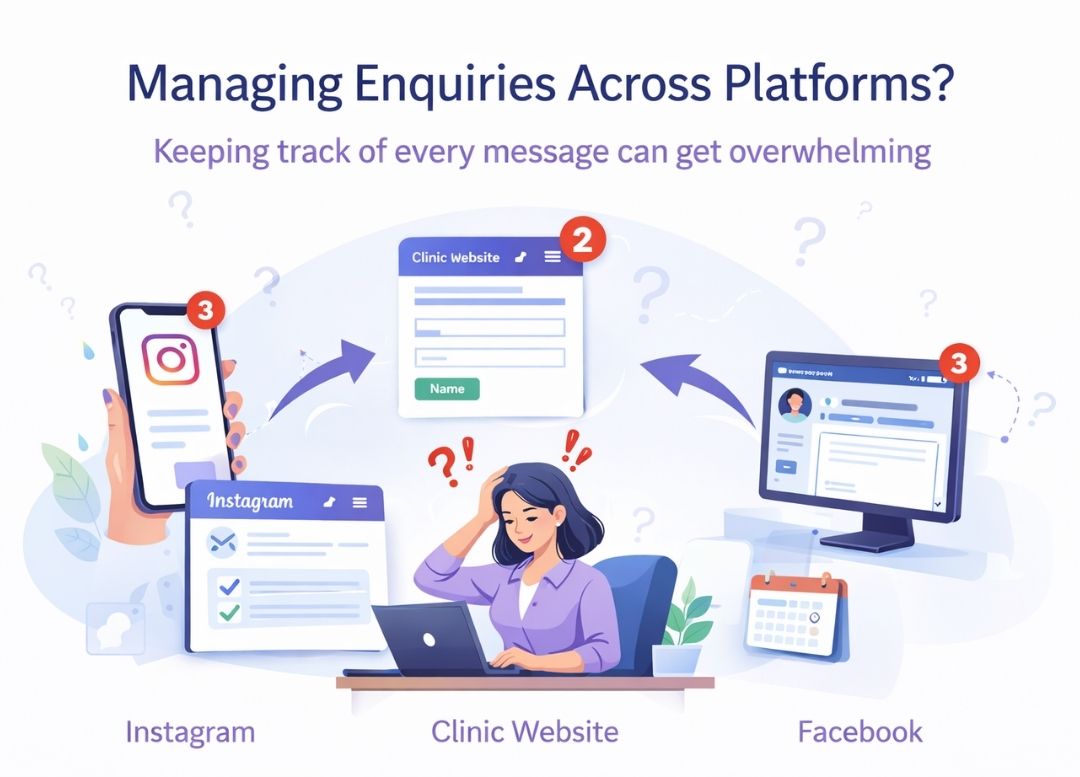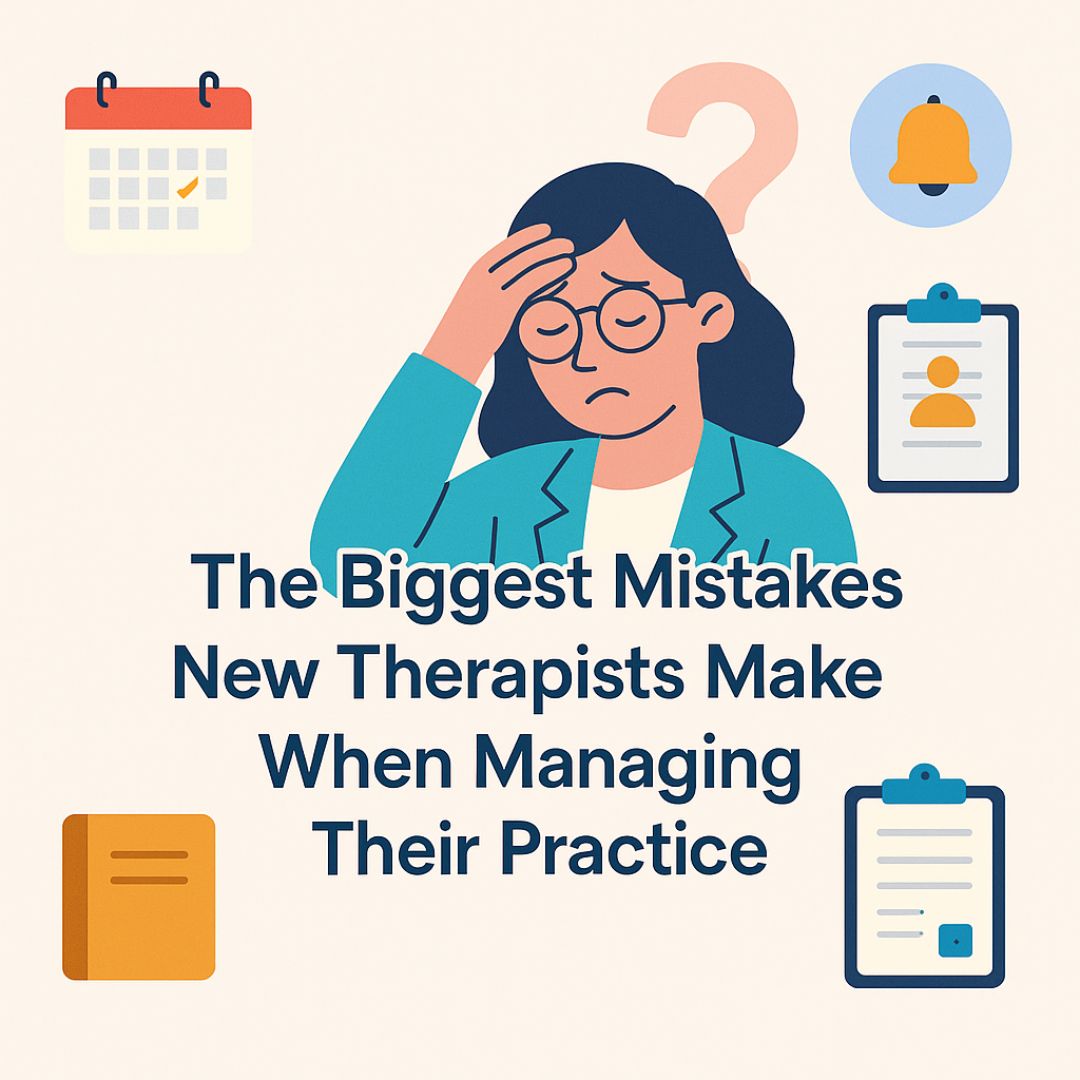Why a Website is a Must-Have Tool for Psychologists in Private Practice?
A well-designed and optimised website can serve as a powerful tool to connect with potential clients, build credibility, and provide valuable information and resources.

On this page
Jump to sections
A Closer Look At The Role of Psychologists in Healthcare Delivery Across India
Introduction
In today's digital age, having a strong online presence is crucial for professionals in various fields, including psychologists in private practice. A well-designed and optimised website can serve as a powerful tool to connect with potential clients, build credibility, and provide valuable information and resources. This article explores the reasons why a website is a must-have tool for psychologists in private practice and highlights the numerous benefits it offers.
Establishing an Online Presence
Having a website allows psychologists to establish a professional online presence. It acts as a virtual storefront, making it easier for potential clients to find and learn about their services. By creating an engaging website, psychologists can showcase their expertise, qualifications, and approach to therapy, effectively capturing the attention of those seeking mental health support.
Increasing Visibility and Reach
With a website, psychologists can expand their reach beyond their local area. By optimising their website for search engines, they can improve their visibility in online searches and attract clients from different geographic locations. This broader reach increases the chances of connecting with individuals who are specifically looking for their specialised services.
Building Trust and Credibility
A well-crafted website helps psychologists build trust and credibility with potential clients. Through informative content, testimonials, and success stories, psychologists can demonstrate their expertise and showcase their track record of helping clients overcome various mental health challenges. A professional website instils confidence in potential clients and increases the likelihood of them reaching out for therapy.
Providing Information and Resources
Psychologists can utilise their website to provide valuable information and resources to their clients and the general public. By creating a blog or resources section, they can share articles, guides, and tips on mental health topics, self-care practices, and coping strategies. This not only establishes them as a reliable source of information but also helps individuals gain insights and support even before seeking therapy.
Streamlining Appointment Booking
A website simplifies the appointment booking process for clients. Psychologists can integrate an online scheduling system into their website, allowing clients to book appointments conveniently and securely. This eliminates the need for time-consuming phone calls and streamlines the overall administrative process, enhancing the client experience and improving practice efficiency.
Sharing Success Stories and Testimonials
Psychologists can leverage their website to share success stories and testimonials from satisfied clients. By highlighting the positive outcomes of their therapy sessions, psychologists can inspire hope and confidence in potential clients. These personal stories serve as powerful testimonials to the effectiveness of their therapeutic approach, further establishing trust and credibility.
Offering Educational Content
An essential aspect of a psychologist's website is providing educational content. This can include articles, videos, or podcasts that address common mental health concerns, offer coping strategies, or provide insights into various therapeutic techniques. By offering educational resources, psychologists not only contribute to the mental well-being of their audience but also position themselves as knowledgeable and caring professionals.
Fostering Community and Engagement
A website can serve as a platform to foster a sense of community and engagement. Psychologists can create forums or discussion boards where individuals can connect with one another, share their experiences, and seek support. This interactive aspect of the website encourages engagement and builds a supportive community, which can be especially beneficial for individuals who may feel isolated or stigmatised due to their mental health challenges.
Showcasing Specializations and Expertise
Psychologists often have specific areas of expertise or specialise in certain therapeutic approaches. A website allows them to showcase their specialisations and highlight their unique strengths. By clearly communicating their areas of expertise, psychologists can attract clients who are seeking specialised services, increasing the likelihood of a successful therapeutic relationship.
Staying Competitive in the Digital Age
In today's digital landscape, having a website is essential for psychologists to stay competitive. Many individuals turn to the internet to search for mental health services, and without an online presence, psychologists risk being overlooked. A well-designed website sets them apart from their competitors and positions them as modern and accessible practitioners.
Utilising SEO for Higher Search Rankings
Search Engine Optimization (SEO) is crucial for improving a psychologist's website's visibility in search engine results. By incorporating relevant keywords, optimising meta tags, and creating quality content, psychologists can enhance their website's SEO and rank higher in search engine rankings. This, in turn, increases the chances of their website being discovered by potential clients.
Ensuring Privacy and Security
Psychologists must prioritise privacy and security when developing their website. Implementing secure socket layer (SSL) encryption, using secure forms for data collection, and ensuring compliance with data protection regulations help protect client information and maintain confidentiality. Demonstrating a commitment to privacy and security instils trust in potential clients and reassures them that their sensitive information will be handled responsibly.
Conclusion
In conclusion, a website is a vital tool for psychologists in private practice. It offers numerous benefits, including establishing an online presence, increasing visibility and reach, building trust and credibility, providing valuable information and resources, streamlining appointment booking, enhancing communication with clients, sharing success stories and testimonials, offering educational content, fostering community and engagement, showcasing specialisations and expertise, staying competitive, utilising SEO, and ensuring privacy and security. By embracing the power of a well-designed and optimised website, psychologists can effectively connect with potential clients and make a meaningful impact in the field of mental health.
About the Author
Puneet is the founder of LifeHetu Technology, a platform built specifically for mental healthcare professionals to manage appointments, documentation, payments, and client engagement securely. He works closely with therapists, psychologists, and counselling centres to simplify digital practice management while preserving confidentiality and clinical integrity.
FAQs
Why is a website important for psychologists in private practice?
It establishes a professional online presence and helps connect with potential clients seeking mental health support.How can a website increase a psychologist’s reach?
SEO optimization boosts visibility in searches, attracting clients from various locations beyond the local area.What builds trust on a psychologist’s website?
Informative content, testimonials, and success stories demonstrate expertise and inspire client confidence.How does a website simplify appointment booking?
An online scheduling system offers real-time availability and automated reminders for a seamless client experience.What role does educational content play on a website?
Articles and videos on mental health topics position psychologists as knowledgeable resources and support clients.Why is SEO crucial for a psychologist’s website?
It improves search rankings with keywords and quality content, making the site more discoverable to clients.Where can psychologists find tools to build their website?
Explore solutions at LifeHetu.
On this page
Jump to sections
Related Reads. Similar Blogs to Check Out.





